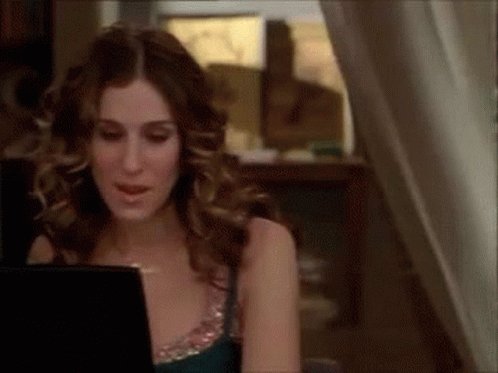The Dance of Resignation: From Fear to Empowerment
When we feel resigned, do we edge towards the side of acceptance, or the side of defeat? Or are we simply accepting defeat? I feel like I’m having a, ‘I couldn’t help but wonder’ moment, tapping at my laptop, wondering what resignation means to me.
Resignation feels like a step ball change process. There’s a step to adjust. Things don’t go quite according to plan, so I try to side step the issue, try to accommodate. This inevitably leads to me being on the back foot; things feel unsteady and I retreat slightly, either emotionally or physically.
You may think that that is where the story of resignation stops, but I think it can actually lead to an active step forward; a decisive move which is about, well, change.
Let’s dance… 😂
Let me waltz you back to a time when I worked in advertising. I know, who knew?!
Three days after I had returned from maternity leave with my first son, I resigned. I had had my doubts about returning to work; we lived abroad and away from family, my husband had started his own company and I had a demanding job as a board director of a direct marketing agency.
I had household-name clients in a job that I had seen as exciting and fun. Once my son was born, everything was viewed through the lens of motherhood. Was I prepared to sacrifice time with my child in order to help corporates line their pockets?
Turns out, no.
A friend with whom I had shared my new views whilst still on leave had persuaded me that it was a bad idea to share such doubts with my boss, that I didn’t owe her insight into my hesitations. Maybe I’d change my mind once I started work, maybe it was maternity wobbles rather than a throw the baby out with the bath water crunch-decision moment.
I listened to this advice and so didn’t show a glimmer of concern in any catch ups with my boss before I started back, just in case.
Three days in, and just as she was relaxing at having me back, I told her I couldn’t do it anymore.
Unfortunately, some confusion ensued as she thought I meant sitting on the sofa, then she figured I meant working with a particular client.
‘No, I mean, I can’t work here any more'.
Well that came to her like
Her response?
‘Get out of my sight, I can’t look at you.’
To be honest, I get it, she’d just been blind-sided. Just as she thought she was going to be able to have someone help her lighten the load, I did a lightning strike, and she had quite a human, albeit uncensored, reaction to that.
But thennnnnn, it turns out that toxic culture in the workplace is by far the strongest predictor of employee attrition - 10x more than financial remuneration.
The top three indicators of a toxic work culture are a failure to promote diversity, equity and inclusion, workers feeling disrespected and unethical behaviour. Sounds familiar…
Thinking back, the conversations I had had with my boss were more along the lines of, ‘How are you going to squeeze the fact that you are a mother out of the work environment so that you can still do your job?’ rather than, ‘How can we support you as a human being first and a human doing second?’.
Yet that environment had also been fun. It was creative and fast paced and there were parties, but it was only fun when I was a single child-free working woman. When my needs changed, when I no longer fitted the cookie cutter profile of someone who could work long hours at a moment’s notice, stay out late at night with clients, be available for out of hours calls? Then things changed.
How could I reconcile suddenly no longer finding the environment as welcoming, as easy-going? They hadn’t changed, so it must be me, I must be the problem. At that time, I didn’t see that the culture was one dimensional. You either fitted, or you didn’t.
How frequent a story is it that the comfy privileged are unable to appreciate the experience of the minority? ‘There’s nothing wrong with this culture, look it’s all fun - we give you a good time!’
As long as you fit in.
Toxic culture is made up of micro-moments of fear, self-interest and dishonesty.
Here's the rub. If you look at it in this way, then I had contributed to the toxic culture of the company as much as my boss.
I had been fearful to share my doubts, to give her the opportunity for how they could support me.
My self-interest to appear like I could do it all, be the ideal employee, got in the way of me sharing my limitations.
When she had sought reassurance that I wanted to come back, that I felt I could handle it all, I had lied to her face.
Rather than speaking out about what I needed and possibly creating change, I resigned. As Brené Brown says, clear boundaries are a prerequisite for compassion and empathy. I hadn’t been clear, so how could my boss my compassionate or empathic?
Speaking out in a monoculture takes courage, because when we speak out in that environment we become ‘the other’. Society ‘others’ people to help maintain the culture; a culture should be defined as much by what it rejects as by what it accepts.
It would be lazy to take the point of victim in this story; that this workplace could not meet my needs as a mother, that the demands were unrealistic. Yes that is true, but I also had a part to play.
I think resignation comes from a lack of dialogue, a lack of curiosity about what both parties’ needs are, a lack of agreement on and acceptance of clear boundaries.
My responsibility in this story?
I didn’t share my my doubts, concerns and fears before I started back at work because of my fear, my self-interest and my dishonesty.
Resignation comes where there is no longer the opportunity for dialogue or curiosity.
Do I have a poem about this? Well, what d’ya know?!
You say I’m wrong and you are right,
I say I’m right - you’re wrong!
And so we’re caught, a lonesome fight,
Each lost in our war song.
So similar in our differences,
Our righteousness entwined,
And so it is, and so it is;
No grievance left behind.
But is this last line entirely true?
Is that why we’re battle locked?
I forgave injuries caused by you
Whilst you, my methods mocked.
A relationship’s repairing
Needs some behavioural change.
Each party willing to take ownership
For where they act too strange.
And this is where we falter.
I see it clearly now.
You hear no call to alter
Whilst I’m praying to work out how.
So now, with love and sorrow,
I wave my white flag high.
To God’s care and understanding,
I love and leave you - with a sigh.
When is feeling resigned within a relationship a sign that it is time to resign from that relationship?
When is it time to speak up, even at the risk of being ‘othered’ and when is it time to walk away?
For me, the sign post is when the relationship morphs my behaviour. When I become fearful to speak up, when I am ruminating on how my needs are not getting met and when I find myself being dishonest on a regular basis about how I feel, these are warning signs. I can lean in to this by summoning courage and speaking up with the hope that it can open dialogue.
Yet the feeling of resignation, the lack of enthusiasm or confidence to try, that, for me, is the time to walk away.
So for me, ending a relationship has become not so much that I don’t want to be around someone else’s tricky behaviour, and more about me not liking who I become when I am in relationship.
Resignation is a dying off, but that’s so we can plant something new.
Resignation is a calling back to our values; a reminder of what we are unwilling to put up with, but also what we want to grow and nurture.
How can I grow healthy relationships at work, in my home or with my friends if I don’t give myself permission to resign?
My son turns 18 next week. I have never, for one instance, for one nanosecond of a moment, regretted resigning. And I think that’s also a truth about resignation. When we do it grounded in our values, we do it wholeheartedly.
And…imperfectly.
But then, what we do wholeheartedly is often done imperfectly.
What do you think? A fair appraisal or do you disagree? I’d love to know your thoughts on this, so please share them!
Thanks so much, as ever, for subscribing.
That’s it for now,
‘Til next time.
Jacky x







